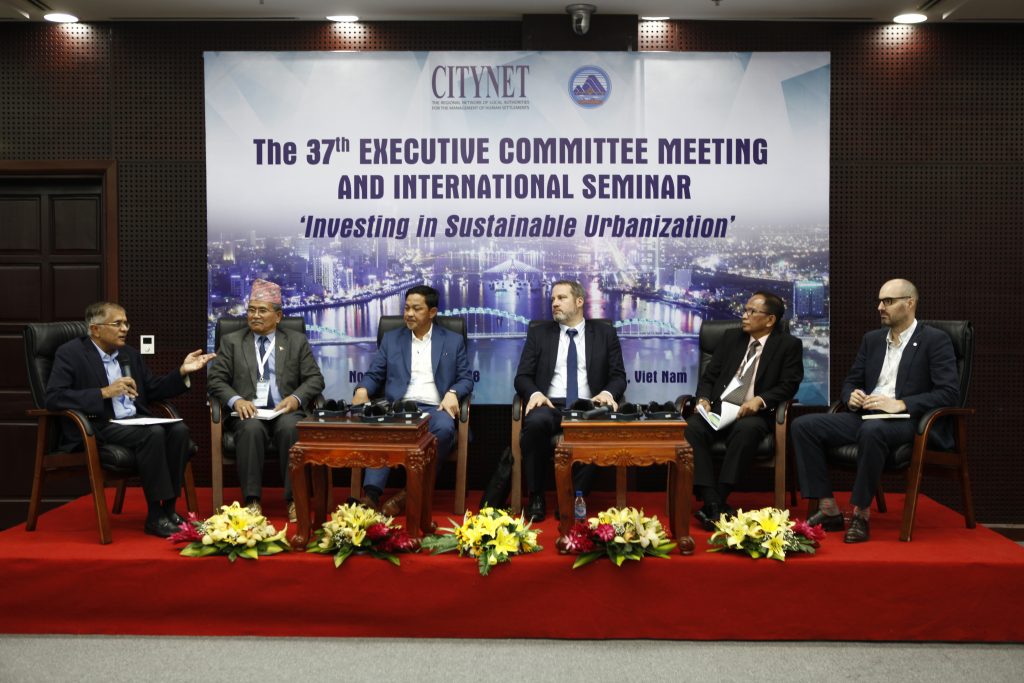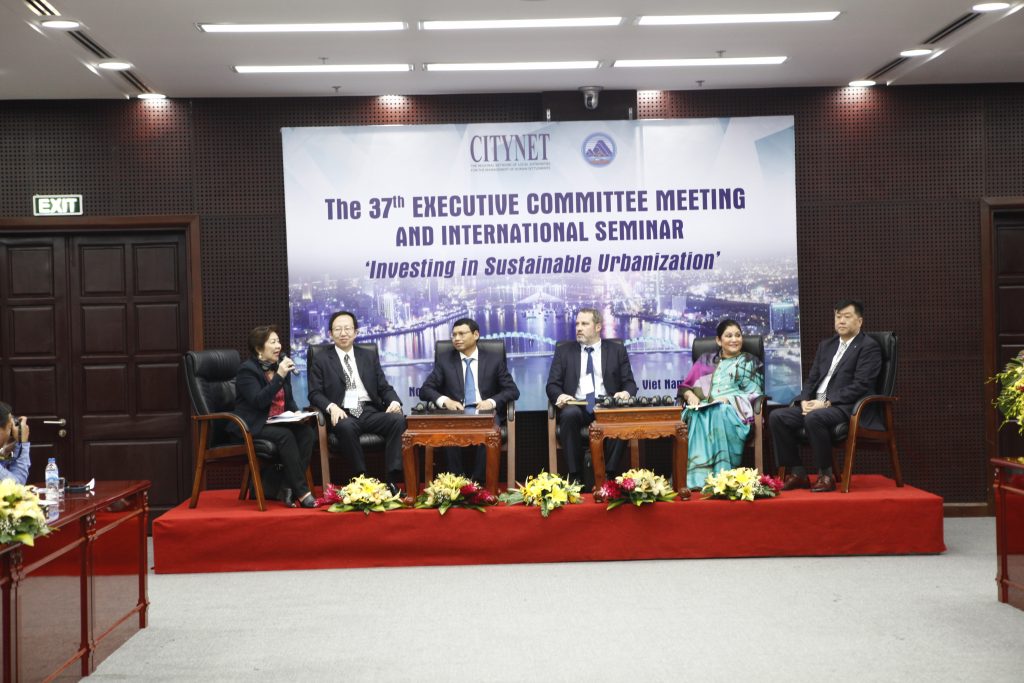
CityNet and Da Nang People’s Committee convened city mayors, city officials, urban stakeholders and international experts across the Asia Pacific region for the 2018 CityNet Executive Committee Meeting to voice the cities’ challenges and solutions as well as to network and form partnerships with other CityNet members and partners. The event took place from November 21-22 in Da Nang City Administrative Center.
The Executive Committee is the highest governing body of CityNet and they meet once a year to evaluate the network’s activities throughout the year and map out its vision and strategy for the following year. This year is CityNet’s 37th session of the Executive Committee Meeting. As the largest urban stakeholders in the Asia Pacific region, CityNet commits to address urban challenges by connecting urban actors and deliver tangible solutions for cities, through various activities from city-to-city cooperation, capacity building programs, technical expertise consultation, and exposure visits for the past 30 years.

In this year’s Meeting, CityNet approved twelve new member cities across Asia from the Philippines, Nepal, Malaysia, Mongolia, Iran, and the Republic of Korea. In addition, five organizations also admitted to join the network. This is part of the network’s strategy of expanding the regional cooperation in order to optimize the results of its work.
In conjunction with the program evaluation and planning, CityNet also launched the first draft of their study and survey findings focusing on the “Smart Needs in Urban Mobility, Ecomobility, Walkability, Emissions, and Smartness” in collaboration with the Korea Associates Business Consultancy. The survey was structured to give a city profile mobility, walking and cycling, emissions and smartness and future plans and policies. One of the recommendation deriving from this study is that cities need shared experiences from their peers and expert advice from the more advanced cities. This is where the role of city network like CityNet comes into play, to facilitate their city-to-city cooperation in urban development.
The CityNet Secretary General Vijay Jagannathan, therefore, proposed the solutions by creating a technical working group for city-to-city cooperation or leadership group in which some of our more advanced developing country cities commit to partner with Seoul and Yokohama to engage actively in promoting sustainable urbanization among our members by sharing our knowledge, technical expertise, and encouraging B2B investments.

Following the Executive Committee Meeting, CityNet held the International Seminar: ‘Investing in Sustainable Urbanization’ with partners from the World Bank, Asian Development Bank, and Global Green Growth Institute. The discussion focused on city finance and urban infrastructure investments. Infrastructure is an enormous challenge for urbanization as the demand intensifies. Urbanites largely depend on effective urban planning and access to affordable and efficient public services. Local governments are increasingly expected to shoulder greater responsibilities for the financing of their infrastructure investments.
However, they commonly lack access to the financial resources to do so and have to respond to intensified demand for infrastructure as urban populations continue to grow. City finance is crucial in making cities more sustainable, inclusive and resilient. Without sustainable financing and investments in urban infrastructure, cities won’t be able to develop solutions to the various challenges they face. This seminar provided a platform for city leaders, practitioners and finance experts to share best practices and discuss how smart infrastructure investments can foster sustainable urbanization.
Participation in this event is an opportunity to reach high-level government officials who have the power and political will to implement innovative ideas in their cities as well as potential partners. Thus, participants will leave with a range of new urban development tools at their disposal, and strengthened connections to their counterparts across the Asia Pacific region.

